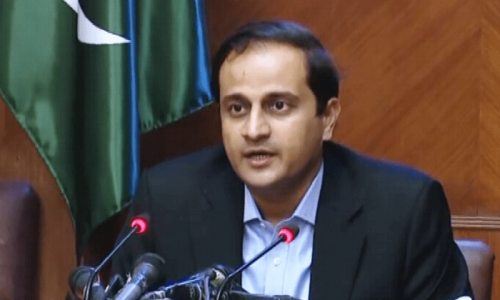KARACHI, April 29: France will push for a common European Union immigration policy when it assumes the EU Presidency in July this year.
This was stated by the French Consul-General in Karachi, Mr Pierre Seillan, while speaking on “France: Ethnic, religious and regional differences”, at the Area Study Centre for Europe, University of Karachi, on Tuesday.
The first session was chaired by former ambassador Mansoor Alam.
At present, he said, national identity was losing ground in relationship to citizenship that included both rights and responsibilities. It was for this reason that France during the six-month presidency would move ahead with its proposal for a common European pact on immigration, he said.
The EU had about 25 million non-national citizens in 2004. At that time in France there were 4.9 million immigrants, two-thirds of them coming from Africa, including the sub-Saharan region, of which half of the population was less than 17 years and where one out of three inhabitants lived on less than Rs100 a day. Forty per cent of the immigrants now reside in “Ile de France” region or in the southeast of France. There are departments in the Parisian suburbs where two-thirds of the populace comprises immigrants.
He said the average unemployment rate among foreigners was 20 per cent, which was twice as much the national average. In certain suburbs, it reached up to 40 per cent, he said, adding that 124,000 people had taken political asylum in France.
Mr Seillan said the problem lies in dealing with the issue of illegal immigrants. He said the new law allowed that the foreigner desiring to bring his family to France must prove that he had revenues in proportion to the size of his family, failing which integration was predestined to fail. Besides, he should have a smattering of French as integration was substituted by ghettoization without knowledge of the language, the consul-general added.
Laying emphasis on secularism, the diplomat said secularism was only applied in metropolitan France where five million to six million Muslims (10 per cent of the total population) resided.
He pointed out that there were around 2,000 mosques, most of them on premises not designated for this use but a very few French Muslim schools. However, he said, the growth rate was quite palpable as the law about secularism gave a boost to this tendency proportionately. And yet Muslims were very largely under-represented in the political set-up, he said.
In his presentation on “Secularism and Islam in France”, former ambassador and analyst Tariq Fatimi was of the view that the issue of religion had assumed renewed importance in this age when it was expected that economic development, information explosion and globalisation would reduce the attraction of religious beliefs.
He said that there were around five million Muslims in France and Islam was considered the country’s second largest religion. Sadly, he said, the majority of Muslims exercise very little influence in public life, though they were beginning to operate as a more cohesive force. Moreover, the September 11 tragedy accentuated the fact that Islam was no longer a foreign policy issue but a domestic one as well.
Mansoor Alam, in his remarks, cited Quranic verses in support of his contention that secularism was actually advocated by Islam. Earlier, the welcome address was presented by Director of the Area Study Centre for Europe Dr Naveed Ahmad Tahir.
In the second session, which was chaired by Ambassador Tariq Fatmi, Consul-General of Germany Hans-Jaochim Kiderlen spoke on “German socio-political scene: new challenges in the 21st century”. Uzma Shujat spoke on “Why is the new wave of social change violent in France”, while Moiz Khan talked about Islam in France and Germany.











































Dear visitor, the comments section is undergoing an overhaul and will return soon.